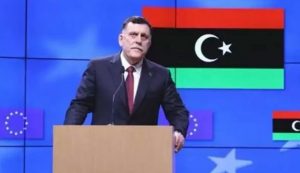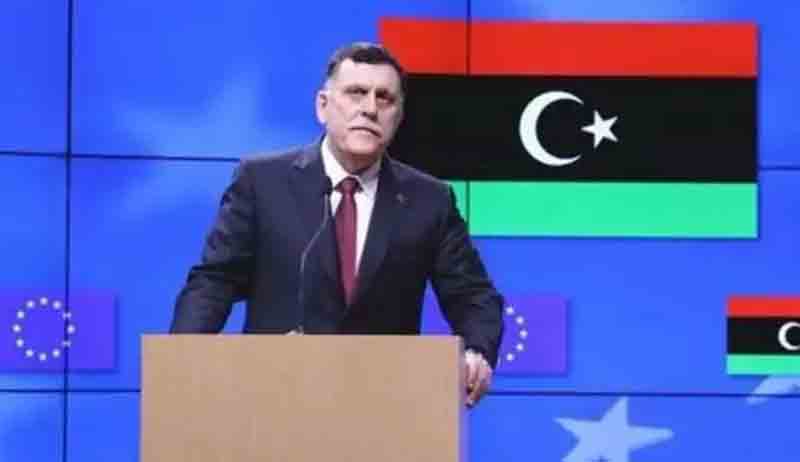By Libya Herald reporters.

Tunis and Tripoli, 22 June 2017:
With EU heads due tomorrow to try and address the burgeoning flow of migrants from Libya, Presidency Council (PC) head Faiez Serraj has set his head against any EU plan to establishing migrant reception centres in Libya itself.
Today in Brussels at the opening session of the EU meeting Serraj warned “as the number of migrants rises, the economic and social fabric of southern Libya is placed under very significant strain.” Libya did not have the resources to patrol 4,000 kilometres of its southern borders with Niger, Chad and Sudan to manage the significant migrant flows. He said that EU “support” was essential.
Serraj has also said he is completely opposed to the Italian-led idea of turning Libya into a holding centre for would-be migrants.
The EU meanwhile wants to stop migrant departures from Libyan beaches and has looked to the Libyan coastguard to help stop the people traffickers. Unfortunately today, the second anniversary of the start of the EU’s anti-smuggler drive Operation Sophia, there is muted despair at the poor performance of the coastguard.
For instance despite extensive operational and human rights training by the Italians, a Libyan coastguard cutter this week actually fired, apparently in error, on an Italian naval vessel involved in a migrant rescue. The cutter is also alleged to have drawn alongside one of the migrant inflatables and made off with the outboard engine. Some in Brussels are taking the view that elements of the Libyan coastguard actually appear to be in league with the people smugglers.
Nevertheless EU aides were briefing that tomorrow ministers in Brussels are likely to agree further support for the Libyan coastguard. In a letter to ministers yesterday, EU council president Donald Tusk wrote “I don’t see why we cannot bear greater financial responsibility for the functioning of the Libyan navy coastguards”.
Serraj who arrived in Brussels on Wednesday for the two-day summit, has also said that Libya needs more funding to deal with migrants already held in camps in Libya. Regular outside inspections including several by the outgoing UNSMIL chief Martin Kobler have found the treatment of migrants in local detention centres to be inhumane. Each visiting mission is told by camp administrators that they can do no more for their detainees because they are not receiving promised funding.
After he had spoken at the opening session of the EU ministers’ meeting, Serraj and foreign minister Mohamed Siala went on to a series of meetings, one of them with NATO secretary-general Jens Stoltenberg. The communiqué afterwards suggested that little new ground was broken. Serraj said he wanted NATO to help boost Libya’s “military and security institutions” which faced the challenges of terrorism and illegal migration. He wanted better military and security coordination between Libya and NATO and said he hoped that this would contribute to Libyan security.
Stoltenberg said NATO was ready to provide this support and repeated there could be no military solution to the Libyan crisis. He also praised Serraj’s efforts to achieve countrywide stability and the “positive security developments” in Tripoli and the control exercised there by the GNA and the security services.
Serraj and his team also saw Italian prime minister Paolo Gentiloni and EU Foreign policy chief Federica Mogherini.







